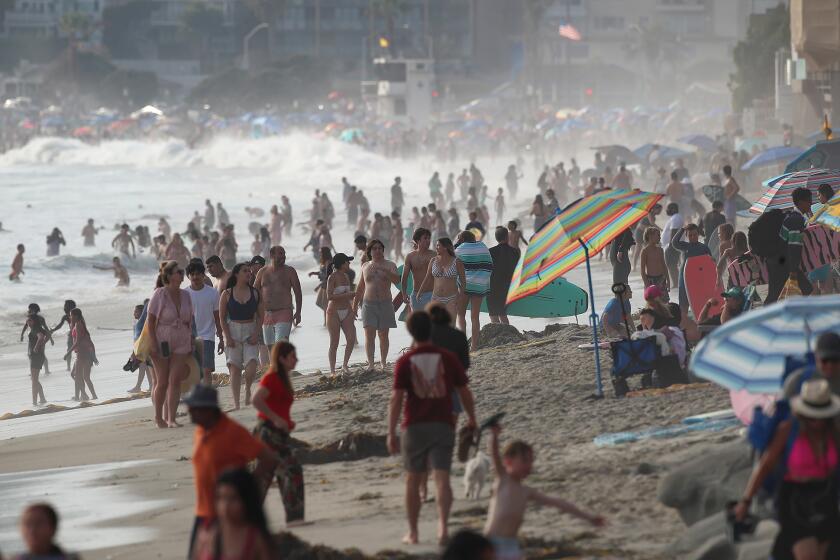Water board shoring up grease trap rules
- Share via
Paul Clinton
NEWPORT BEACH -- As regional water regulators move to prohibit any
future sewage spills caused by grease blockages, the city is readying a
program to include more monitoring and regulation.
By March, officials at the Santa Ana Regional Water Quality Control
Board say they hope to have a new zero-tolerance policy in place for
spills.
The city has been taking it on the chin from those very same
regulators for failing to do enough to prevent spills into Upper Newport
Bay.
The sticking point, it seems, has been the city’s unwillingness to
step up requirements on grease-interceptor devices at restaurants. The
traps catch much of the grease before it gets stuck in city lines.
The new policy, known as the Orange County Sanitary System Overflow
permit, would force Newport Beach and other agencies that manage sewer
pipes into line, board division chief Michael Adackapara said.
“What it requires is that the cities actively monitor their sewage
systems network,” Adackapara said. “Newport Beach may be slightly better
[than the other agencies], but some of their problems are [due to] a lack
of maintenance [of the traps].”
In response to the board’s criticism, the city has already taken a
number of steps to comply with the tightening of the regulatory screws.
The rules are also a benefit to the city’s primary tourist resource --
Back Bay.
“These are the most extensive rules on sewage overflows that have ever
been written,” said Assistant City Manager Dave Kiff. “They’re important
rules to keep the bay clean and keep the visitors coming.”
In November, the city hired a consultant to analyze the town’s 325 or
so eateries and other places where food is prepared.
The resulting survey found 120 businesses that had a trap of the
correct size, Kiff said.
Of the restaurants surveyed, 87 don’t have a trap but need it. Only 60
restaurants don’t need a trap, while 29 have interceptors but they are
the wrong type.
“I don’t think it’s a good idea to require interceptors for everybody
because some of them can’t afford it,” Kiff said. “Those groups that
can’t comply might have to agree to an aggressive cleansing schedule,
which we would bill them for.”
In 1997, the City Council passed a grease-control ordinance that
requires new restaurants and existing eateries revamping their menus to
install a trap.
The law, which initially would have required all restaurants to have
the traps, was substantially softened after a group of restaurant owners
protested it.
One of those was Dan Marcheano, who owns the Arches on Mariners Mile
and is also a founder of the Newport Beach Restaurant Assn.
Additional rules and regulations aren’t needed, he said, because a
clogged sink quickly disrupts any smooth running kitchen. It’s bad for
business, he said.
“It has an accomplish level of zero,” Marcheano said about the new
rules. “Logic will tell you that a restaurant will not do anything to jam
up the pipe. We would be the most cautious people.”
Marcheano said it would cost him a minimum of $50,000 to install an
interceptor.
Bob Caustin, founder of Defend the Bay, said while some restaurants,
such as Marcheano’s, are doing their part, he believes the new
regulations are needed for those that aren’t.
Restaurant owners “should be absolutely required to maintain clean
pipes,” Caustin said. “If they’re contributing to the grease, they need
to be held responsible.”
All the latest on Orange County from Orange County.
Get our free TimesOC newsletter.
You may occasionally receive promotional content from the Daily Pilot.









